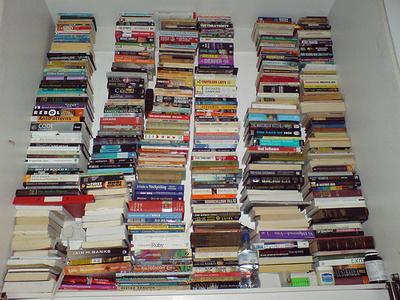Advertisement
Making The Case For 'Slow Reading'

You've probably heard of the "slow food" and "slow money" movements. There's also a "slow reading" movement, that encourages people to savor the written word, not on a screen but on a page and often read aloud. There isn't much formal research on whether it helps students do well in school or later in life, but proponents say slow reading makes a world of difference. We speak with Professor Thomas Newkirk, who teaches writing at the University of New Hampshire and its annual summer Writers Academy. Helene Kenney and Evan Howard are students attending the academy. Helene Kenney's composition that she wrote as part of an exercise from last year's Writers Academy is below.
Uncertainty.
To be uncertain. The large cloaked figure that stands there, watching your every move. He doesn't speak, doesn't stir, just watches, and listens, and waits. Waits for the right moment to pounce. And when you reach a fork in the road, he tackles you and pins you to the ground.
A shivering cold seems to wash over you as you stare into those black, merciless eyes.
It is in this moment that uncertainty seems to stare within.
Then, very slowly, it lets go of its prey and, with a swish of its cloak, disappears into the mist. You jump up as if nothing has happened, but you are left with the feeling of uncertainty of which path to choose.
-Helene Kenney